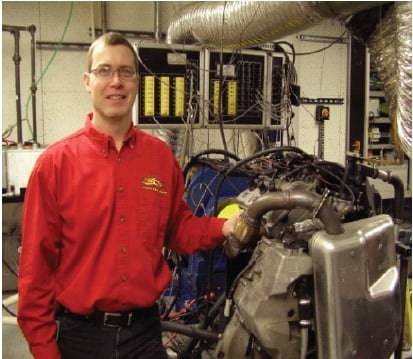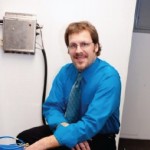 The ME-EM Graduate Seminar guest speakers on Thurs. Feb. 13 at 4:00 in 103 EERC will be Dr. David Harvey from Ballard Power Systems.
The ME-EM Graduate Seminar guest speakers on Thurs. Feb. 13 at 4:00 in 103 EERC will be Dr. David Harvey from Ballard Power Systems.
Title: Challenges, Opportunities, and Open-source A perspective on Fuel Cell simulation for performance and durability
Proton Exchange Membrane Fuel Cells have been a prominent part of the alternative energy landscape for a considerable length of time. The challenges facing the technology are generally categorized into three main areas: Cost, Performance, and Durability. These three areas are for the most part largely intertwined, as changes in materials or designs that improve one area invariably have, for the most part, a negative effect on the others. Of particular focus in recent initiatives has been the catalyst layer, specifically the performance and durability of a three part system of a supporting particle, nano-catalyst, and ionomeric “binder”. To date, very few commercial numerical codes exist that can adequately describe state-of-the-art PEM fuel cell performance or durability. To a large extent this is a product of the speed at which the materials development and theoretical understanding is moving, such that commercial codes tend to lag in capability as the “investment” to stay current is immense. Open-source initiatives have become commonplace in many areas, one of which is computational fluid dynamics. The open nature of these codes has led to the development of “current” sets of theory and physics in various application areas and the community nature of the projects enables and encourages leverage in other areas of engineering and design. This methodology has been applied to the development of a free and open-source software initiative, FCAPOLLO that has been built on a free and open-source CFD package.
David is a researcher in the field of alternative energy. He has been working in the area of proton exchange membrane (PEM) fuel cells since 2002 with a focus on the development of numerical simulations for performance and durability. In 2005, David began working for Ballard Power Systems in Burnaby, BC on the development of simulation codes to predict the performance of membrane electrode assemblies (MEAs). During that time, he and his group, in coordination with researchers at Queen’s University in Kingston, Onario, were the first to develop a stoichastic technique for the direct numerical simulation of catalyst layers. This work transitioned into the U.S. Department of Energy project, “Microstructural Mitigations Strategies: Morphological Simulations and Experimental Approaches” in which a series of simulations at scales ranging from nano to macro were coupled in a multi-scale modelling methodology in order to assess and predict the performance and degradation of carbon-supported platinum nano-catalysts. His current area of foucs is on the development of the software derived from the U.S. Department of Energy Project, FC-APOLLO. FC-APOLLO is a free, open-source fuel cell design software built in the opensource CFD package
OpenFOAM (trademark of OpenCFD).




